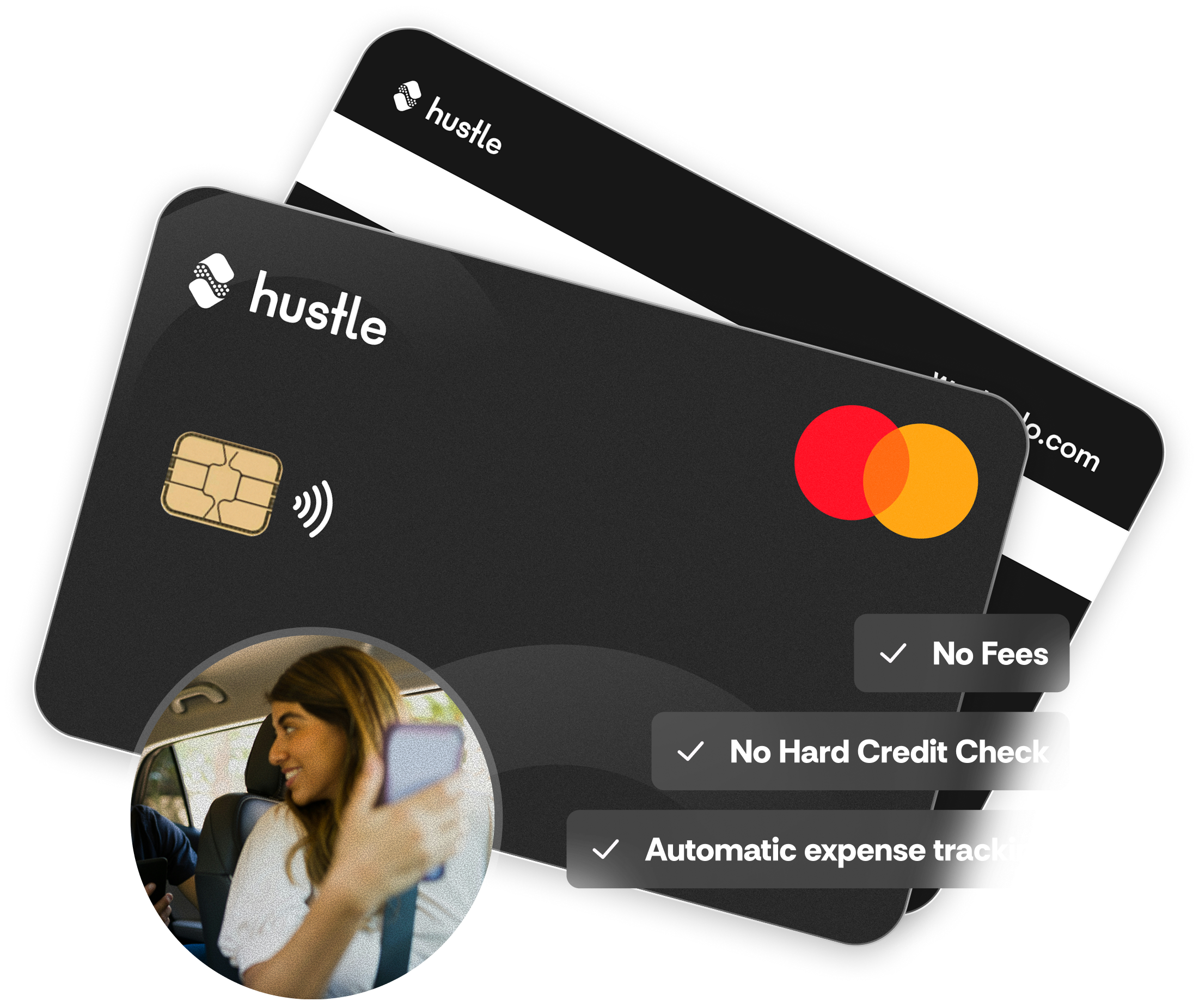Credit touches nearly every part of your financial life. But for many people, it’s still a confusing concept. Whether you're applying for an apartment, buying a car, or qualifying for a loan, your credit score follows you. But what exactly is credit? And how does it work behind the scenes?
In this guide, we’ll break down everything you need to know about credit—how it’s calculated, why it’s important, and how to build it smartly with tools like the Hustle Card. If you're just starting your credit journey or looking to better understand your score, this post will help guide you through the process of understanding how credit impacts your day to day life.
Understanding the Basics of Credit
What is Credit?
At its core, credit is a financial trust system. It refers to your ability to borrow money or access goods and services now, with the promise to repay later. Lenders, landlords, and even some employers use credit to evaluate your reliability.
Credit isn’t a physical thing. It’s a record of your borrowing history and how responsibly you’ve managed it. If you’ve ever used a credit card, taken out a loan, or financed a phone, you’ve already interacted with credit in some form.
Why Credit Matters in Your Financial Life
Good credit opens doors and helps you gain access to financial freedom. With strong credit, you may:
- Get approved for loans and credit cards with better terms.
- Qualify for lower interest rates.
- Have a smoother rental application process.
- Even improve your chances in certain job applications.
On the flip side, bad or no credit can limit your financial freedom, making it harder (or more expensive) to get the things you need.
How Credit Works: The Mechanics Behind the Score
Credit Reports: What They Are and How They’re Used
A credit report is a detailed summary of your credit history. It includes:
- Open and closed credit accounts
- Payment history
- Credit inquiries
- Public records (for example, bankruptcies)
Three major credit bureaus—Experian, Equifax, and TransUnion—compile these reports, which lenders use to decide if you’re a trustworthy borrower.
What is a Credit Score?
Your credit score is a three-digit number (usually between 300–850) based on your credit report. It acts as a snapshot of your creditworthiness. The higher your credit score, the more creditworthy lenders consider you to be.
How Credit Scores Are Calculated
Here’s a breakdown of the FICO Score model (the most widely used):
The Role of Credit Bureaus
Each credit bureau may have slightly different information, which is why you can have different scores with each one. It's wise to monitor all three to stay on top of your financial reputation.
Different Types of Credit You Should Know
Credit isn’t one-size-fits-all. There are different types of credit that serve different purposes, and understanding them is key to managing your credit wisely.
Revolving Credit (Example: Credit Cards)
Revolving credit lets you borrow up to a certain limit and repay it over time. The most common example is a credit card. As you pay off what you borrow, that amount becomes available again—like a reusable financial tool.
This type of credit is great for flexibility but requires discipline. Carrying a balance month to month can lead to high interest charges and negatively impact your credit score.
Installment Credit (Example: Loans and Mortgages)
Installment credit refers to loans you repay in regular, fixed payments over a set term. Examples include:
- Car loans
- Student loans
- Mortgages
These loans help build credit by showing you can handle large amounts responsibly over time.
Open Credit (Example: Utilities)
Open credit usually refers to bills that are due in full each month, like:
- Utility services
- Mobile phone bills
- Internet and cable subscriptions
While not always reported to credit bureaus, missed payments can damage your credit if they’re sent to collections.
How to Build and Improve Your Credit
Building credit is a journey, not a sprint. Whether you’re starting with a blank slate or looking to improve, the right strategy makes all the difference. It’s also important to note that building strong credit or repairing your credit takes time. It won’t happen overnight, and the results may take several months to actualize.
Starting from Scratch: No Credit History
No credit? No problem—everyone starts somewhere. The key is to start small and build smart. You might not qualify for a traditional credit card right away, but there are beginner-friendly options out there.
Credit Builder Cards: A Smart Entry Point
What is a Credit Builder Card?
A credit builder card is designed for those with limited or no credit history. Over time, as you make on-time payments, your activity is reported to credit bureaus—helping you establish or rebuild your credit score.
How The Hustle Card Card Can Help
Solo’s new Credit Builder Card, the Hustle Card, is tailor-made for newcomers to credit. Here’s how it works:
- No hard credit check to get started
- Reports to all three major bureaus
- Automated payments to help you build your credit history
- Designed to help users boost their score responsibly
It’s more than a card—it’s a stepping stone to better financial health. By opening a credit builder card and using it responsibly, you’re unlocking the door to more financial freedom.
Good Credit Habits to Follow
To build a healthy credit profile, practice these habits:
- Pay on time, every time. Payment history is the biggest factor in your score.
- Keep balances low. Aim for a credit utilization rate below 30%.
- Limit new credit applications. Too many can hurt your score.
- Review your credit reports regularly for errors or fraud.
What Impacts Your Credit Score
Understanding the drivers of your score helps you manage credit wisely. Here’s a deeper dive into what matters most:
Payment History
This is the #1 factor. Even one missed payment can cause your score to drop significantly. Setting up autopay can help prevent accidental slip-ups.
Credit Utilization Ratio
This refers to the percentage of your credit limit you’re using. Remember: lower utilization is better. For example, if your limit is $1,000 and you owe $300, your utilization is 30%.
Length of Credit History
The longer you’ve had accounts open—and managed them responsibly—the better. That’s why starting early with tools like credit builder cards is so valuable.
New Credit Inquiries
Each time you apply for credit, a hard inquiry is added to your report. A few are okay, but too many in a short time can signal risk. Applying for the Hustle Card only requires a soft pull on your credit, making it a great option to help you build credit responsibly!
Credit Mix
Lenders like to see that you can handle different types of credit, such as a mix of revolving and installment accounts.
Why Building Credit Early is So Important
Long-Term Financial Impact
A strong credit history benefits you in more ways than one. With good credit, you’ll save on:
- Interest rates for loans and credit cards
- Insurance premiums
- Utility and rental deposits
And when life throws surprises your way, you’ll be better equipped to handle them.
Better Loan and Rental Opportunities
Landlords and lenders often look at your credit before saying “yes.” Starting early means you’ll have a trustworthy record when you need it most—like applying for a student loan or renting your first apartment.
Solo’s Mission to Help You Build Credit
How the Hustle Card Supports Financial Health
At Solo, we believe everyone deserves access to financial tools that help—not hurt. That’s why we’ve created a credit builder card that’s easy to get, simple to use, and focused on long-term growth.
Benefits of Using the Hustle Card
- No hidden fees
- No interest charges
- Payment history reported to the three major credit bureaus
- Smart insights into your credit growth
- Safe, secure, and designed to help you thrive
We’re here to make sure your first steps in credit are your strongest.
Conclusion: Start Your Credit Journey Today
Credit doesn’t have to be scary or complicated. With the right tools and knowledge, you can build a strong credit foundation that supports your dreams. Whether you're just starting out or rebuilding, the Hustle Card offers a simple, secure way to take control of your financial future.
So what are you waiting for? Take your first step with Solo and the Hustle Card—and start building credit that works for you.
On-time payment history may have a positive impact on your credit score. Late payment may negatively impact your credit score. We report payment history to Experian, Equifax and TransUnion. Credit impact may vary based on a number of factors including your activity with other financial services organizations.
The Hustle Card and related banking services are provided by Cross River Bank Member FDIC. Upward Financial Inc. is a technology services provider and the administrator of the Hustle Card program. Deposits FDIC-insured up to $250,000 through Cross River Bank. Line of credit is not a deposit product. Cards may be used everywhere Mastercard is accepted.

